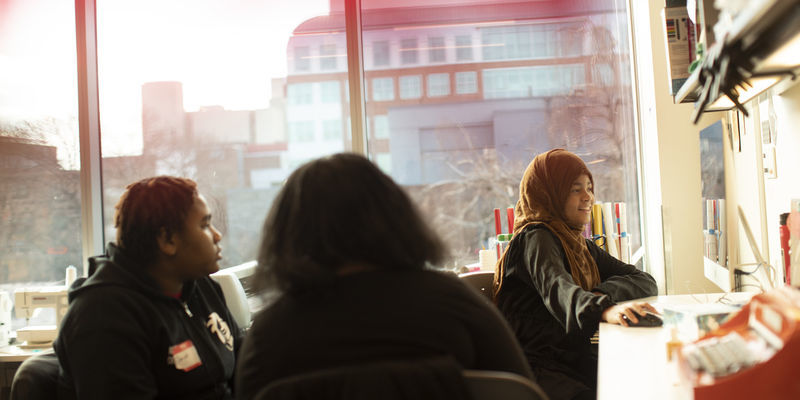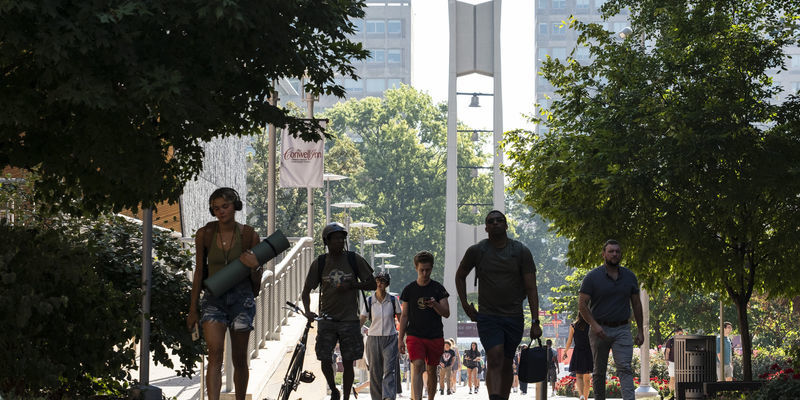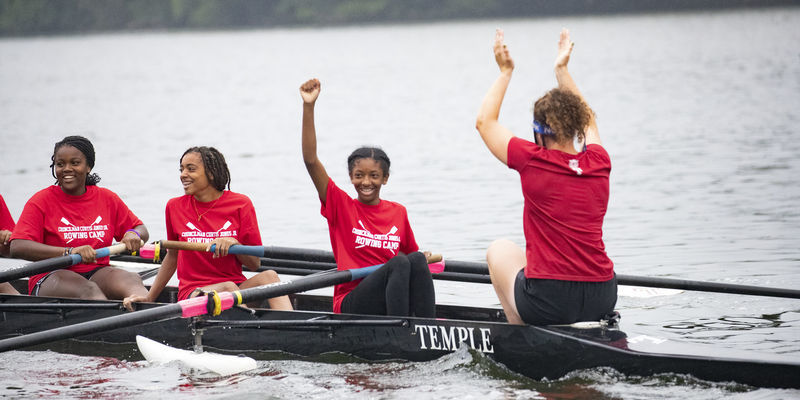Temple’s science fair provides STEM education for young people
Temple University hosted its annual George Washington Carver Science Fair. The fair is sponsored jointly by Temple’s College of Science and Technology and the Office of Community Affairs and Engagement.
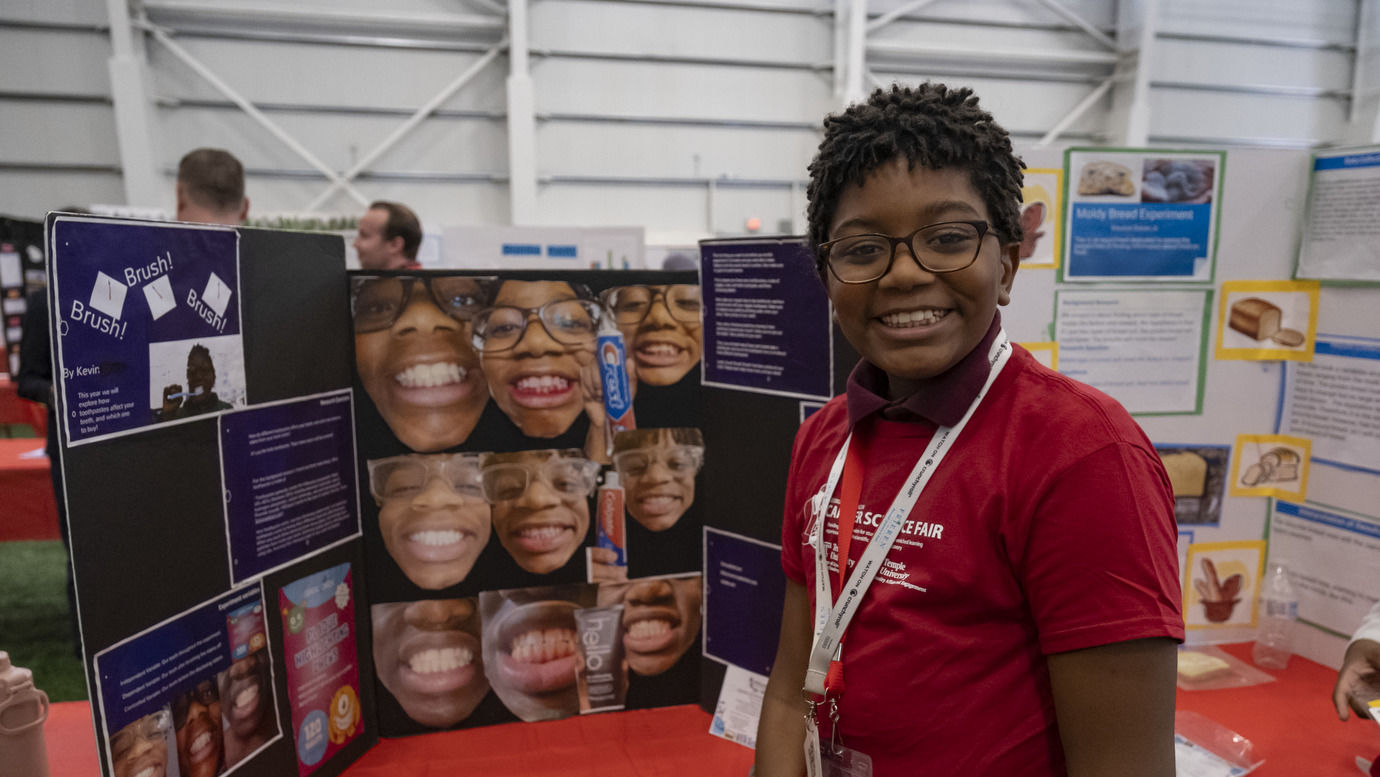
Hundreds of students from the School District of Philadelphia put their science skills to the test at Temple University’s annual George Washington Carver Science Fair (GWCSF). More than 250 science projects were created and displayed by students in grades 6 through high school during the event, held March 7 at Temple’s Aramark STAR Complex and co-sponsored by the College of Science and Technology (CST) and the Office of Community Affairs and Engagement.
The judges in the competition come from scientific, medical, higher education and corporate institutions, all in the Philadelphia area. Together, they evaluate each project based on skills used in the experiments, including creativity and scientific methods. The winning students will compete in the Delaware Valley Science Fair and the Intel International Science and Engineering Fair.
Thomas Anderson, the former associate vice president at Temple’s Office of Community Affairs and Engagement, founded the fair in 1979 to ensure that young people in the region had the opportunity to learn more about science.
Anderson named the fair after George Washington Carver, a Black agricultural scientist and inventor who developed more than 300 food, industrial and commercial products from peanuts and discovered that peanut oil serves as an effective lubricant for massage treatments for patients suffering from muscular disorders.
Temple hosts the fair each year to help inspire students and spur interest in science, technology, engineering and mathematics (STEM).
“Many of the participants are our neighbors, and we aim to give them a bigger picture of learning about science from outside their neighborhood and school classroom,” said Susan Jansen-Varnum, senior associate dean for undergraduate affairs and science education in CST.
“They are examining research projects that go beyond what's in a textbook that can make a real-life impact in other’s lives.”
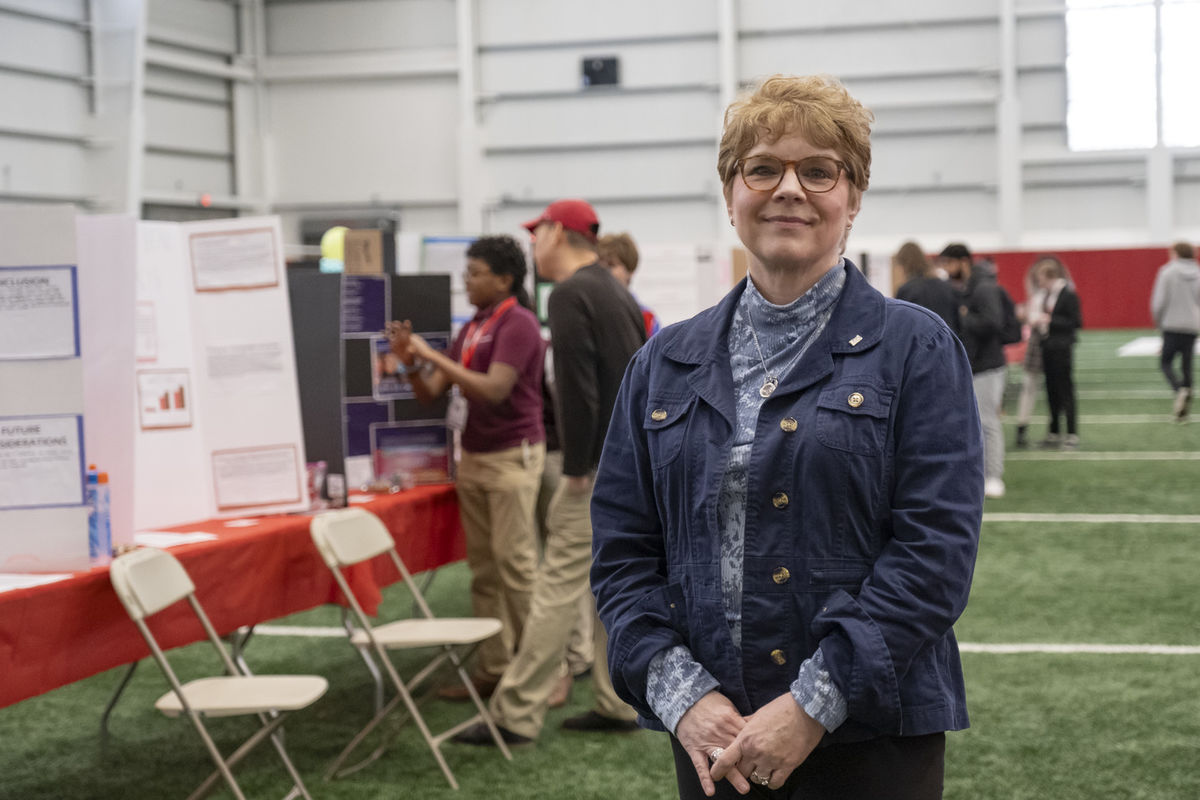 Susan Jansen-Varnum also serves as an administrator for the STEM Ed Network, a Temple community-based foundation that offers (STEM) programmatic activities that have an international scope serving the K–16 student learning community. (Photography by Joseph V. Labolito)
Susan Jansen-Varnum also serves as an administrator for the STEM Ed Network, a Temple community-based foundation that offers (STEM) programmatic activities that have an international scope serving the K–16 student learning community. (Photography by Joseph V. Labolito)
Health profession major Tiffany Tran, Class of 2024, participated at the GWCSF as a judge for the categories of medicine and health, and microbiology. Tran has been working with Jansen-Varnum and is a student-teacher in the university’s TUteach program, which offers Temple students an opportunity to teach STEM subjects in elementary, middle school and high school environments.
“I like to talk to the students to see what drives them to get involved in STEM,” said Tran. “They are heavily involved with their science fair projects, learning about different scientific practices and how to do research.”
“Seeing their efforts rewarded lifts their spirits,” she added. “I love their enthusiasm for science because they are our future.”
Tran said one of the science fair projects that stood out was a middle school student testing the drop of glucose (blood sugar) levels in people sleeping. The student used heart rate monitors and tools to track a person’s glucose levels and sleeping patterns to support that their glucose would drop the more they slept. They discovered a fight-or-flight response, particularly in a person who exercised while not having much sleep.
“For instance, I found that the same participant’s glucose spiked drastically when they exercised after not getting much sleep compared to when they slept for eight to nine hours,” said the student, who attends McCall School.
Another student who attends Ad Prima Charter School did a project examining which toothpaste properties will remove plaque from teeth best. For his experiment, he used plaque-disclosing tablets, a temporary dye that identifies where plaque buildup is on your teeth. After testing different toothpaste brands, he discovered that his everyday toothpaste was the least effective at removing plaque.
He is interested in pursuing a career in bioengineering.
“I am happy that Temple has this fair for the community so that more students can get involved in science and fall in love with it as I did,” he said. “As a Black kid, I think diversity in STEM can create new ways of thinking about science that can affect our lives.”
Temple’s science fair for elementary students will be on the Main Campus on April 11.
